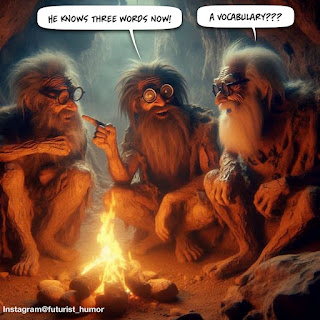Early in my career I attended, and then helped organize and teach Dale Carnegie courses. Dale Carnegie was the legendary author of the 1936 book, "How to Win Friends and Influence People." Mr. Carnegie went on to publish several other bestselling books, and over 9 million people have since graduated through his courses on topics such as public speaking, human relations, sales and management skills.
Dale Carnegie focused his energies and talents on teaching people human relation skills so they could be more confident and successful. I bet Mr. Carnegie never considered that one day we would all be needing robot, cobot and digital assistant relationship skills. Have you thought about that? What kind of skills will the next generation of young professionals need to rise above the robot noise?
What kinds of skills will you need when you are sitting across the table from a robot trained in business negotiations? How do you best interact with a customer service robot to get the best service and your problem resolved?
At some point my robots will be negotiating with your robots for the best deal. How will I train my robots to get the best results? It seems a good place to start would be to first understand who we are negotiating with and how are they trained? What LLM are they based on? It's a strange world we are entering, where we will be mixing it up with all kinds of different humans, AI powered robot avatars, robots, digital assistants and cobots. Will we have one set of human relations skills for humans, and another dozen for different digital entities?
We are in for a wild ride!
*I use generative AI to assist in all my work.
************************************************************************
Kevin Benedict
Futurist at TCS
***Full Disclosure: These are my personal opinions. No company is silly enough to claim them. I work with and have worked with many of the companies mentioned in my articles.







